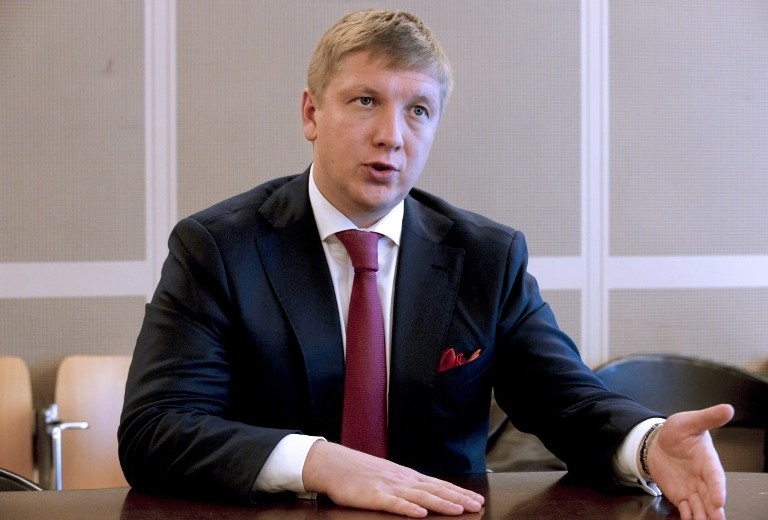Amid a heated dispute, Ukraine’s Cabinet of Ministers decided to extend its contract for Andriy Kobolyev, the incumbent CEO of the state oil and gas monopoly Naftogaz, Prime Minister Volodymyr Groysman announced on March 20.
The contract will be extended for at least another year.
“Today we will extend the contract of the board’s chairman for one year, with monthly and quarterly reports,” said Groysman on a live streaming feed aired on YouTube.
The decision is the opposite of what Groysman said two weeks ago when he announced that Kobolyev will be replaced.
Kobolyev did not intend to leave his seat without a fight, and even branded Groysman’s decision illegal on March 6.
The targeted chairman defended his case by arguing that the government had overstepped its responsibilities and that the appointment of a new head was ultimately the decision of company’s supervisory board only.
The head of Naftogaz was harshly criticized because of high bonus payouts of $46 million in bonuses allocated to the company’s top management after a court case victory against Russian energy monopoly Gazprom which earned Naftogaz $2.6 billion.
Kobolyev vowed after the scandal to transfer his salary to charity, except for his $7.9-million bonus, which had been transferred to his mother’s U.S. bank account.
His contract renewal might come as a surprise considering how determined the Prime Minister appeared earlier this month to remove Kobolyev from Naftogaz starting from March 23.
Nevertheless, Kobolyev received support from the supervisory board of the company, which wrote an endorsement letter to the Groysman urging him to prolong Kobolyev’s position until March 2020.
Kobolyev was interviewed by the Kyiv Post twice after Groysman’s announcement of his removal. Previously Kobolyev had been less open to interviews. Naftogaz gave a detailed interview to the Kyiv Post on March 14.
Even though Groysman has repeatedly criticized Kobolyev and Naftogaz’s supervisory board for their massive salaries and their inability to increase Ukraine’s natural gas production, Kobolyev alleged that his salary was not the actual issue.
Instead, he said that the prime minister aimed at minimizing the decision-making capacities of the supervisory board and transferring more authority to the government.
Kobolyev said that he would accept any contract conditions in order to resume his work.
As a result of the discussions, Kobolyev’s annual salary will be cut in half to $450,000, and he will receive no bonuses that have not been previously approved by the government.
Kobolyev said that his top priorities for this year include: eliminating useless and costly regional gas company intermediaries, increasing gas production and the monopoly’s revenues, unbundling a massive gas transmission network to stimulate a competitive market, and helping the nation become self-sufficient in energy.



